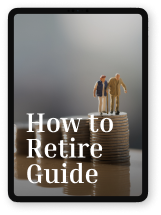
Facing the challenge of saving for retirement, 54% of Americans have paused or decreased their contributions due to rising inflation, as highlighted by the 2022 Q3 Quarterly Market Perceptions Study from Allianz Life. This sentiment echoes the findings of The Federal Reserve’s 2022 Survey, which identified inflation as the primary financial hurdle for U.S. households.
As retirement approaches, a critical question arises: “How much money do you need to retire?” This inquiry, central to retirement planning, involves assessing retirement lifestyle needs, understanding income sources, and engaging in strategic scenario-based financial planning.
Assessing Your Retirement Lifestyle Needs
Estimating your retirement expenses is the 1st step in preparing financially for this significant phase of life. It’s recommended to aim for a savings target of 10 times your employment income, gradually saving in measured steps towards this overarching goal. Consider these categories for a detailed retirement budget:
- Essential Expenses: Housing, transportation, living costs, family care, and medical/health expenses.
- Discretionary Expenses: Entertainment, dining out, hobbies, travel/vacations, and gym memberships.
- One-Time Expenses: Significant events such as a child’s wedding or home repairs.
Additionally, factor in ongoing and fixed expenses like mortgage payments and health insurance premiums. Don’t forget to estimate your taxes in retirement, including federal, state, and local income taxes, plus property taxes if applicable. Planning for healthcare costs is vital, with the average retiree spending roughly 55%-80% of their pre-retirement income annually. For those envisioning an active lifestyle, it’s wise to increase the retirement budget accordingly. Engaging with a financial advisor can help fine-tune your budget and retirement income plan, ensuring a balance between living comfortably and sustaining your savings throughout retirement.
Understanding Retirement Income Sources
Figuring out the different ways to get money when you retire is very important for a safe and stable future with enough money. Here’s an explanation:
- Primary Sources of Retirement Income:
- Social Security: With 47% of individuals planning to rely on it as their primary source, the average benefit stands at $1,461/month. Benefits are adjusted for inflation, but eligibility and the amount depend on one’s work history and earnings.
- Savings and Investments: The average retirement savings account holds $60,000, with 401(k)s and IRAs being common vehicles. A withdrawal rate of 3% to 4% is recommended to sustain income without depleting assets too quickly.
- Employer-Sponsored Plans: 401(k)s, 403(b)s, and pensions offer a foundation for retirement savings. Contributions, matched by employers in some cases, grow tax-deferred until withdrawal.
- Additional Income Avenues:
- Home Equity: Selling a home or opting for a reverse mortgage can supplement retirement income, though the latter requires careful consideration.
- Part-Time Work: Many find fulfillment and financial relief in continuing to work part-time during retirement.
- Annuities and Bonds: These can provide predictable income streams. Annuities, in particular, offer guaranteed income but require careful analysis due to their complex pricing structures.
Understanding these sources and how they interplay is key to effective retirement planning. Diversification across different income streams can mitigate risks and ensure a stable financial status throughout retirement.
Strategic Scenario-Based Financial Planning for Retirement

Strategic scenario-based financial planning for retirement involves a detailed analysis of various factors that can impact your retirement funds. Consulting with a financial advisor is crucial for personalized advice, tailored to your unique situation. They can assist in exploring different scenarios to ensure a robust plan. For instance:
- Retirement Savings Benchmarks:
- Age 35: Aim for 1x to 1.5x of your salary saved.
- Age 65: Target 7.5x to 13.5x of your salary saved.
- Adjustments for marital status and income levels provide further specificity.
- Scenario Analysis Using Tools:
- Utilize tools for creating and assessing different retirement scenarios. Experiment with variables such as retirement dates, work income levels, and pension options.
- Consider debt consolidation and ways to accelerate debt payoff. Use a longevity calculator for personalized planning based on expected lifespan.
- Preparing for Uncertainties:
- Model scenarios for covering long-term care costs and the potential financial implications of a spouse’s death.
- Regularly monitor and adjust your plan to adapt to life changes and market conditions. Factor in investment returns, inflation, and taxes on investment gains during retirement years.
By taking these steps, you can develop a comprehensive retirement plan that considers a wide range of possibilities, ensuring you are well-prepared for the future.
Conclusion
In conclusion, ensuring a comfortable retirement is about more than just hitting a savings target; it’s about making informed decisions that reflect your personal aspirations, lifestyle desires, and financial realities. The significance of adapting plans in response to life’s uncertainties cannot be overstated, highlighting the role of continuous strategy evaluation. For those looking ahead, a comprehensive retirement plan crafted with professional guidance can pave the way for a secure and enjoyable retirement. Plan your retirement with Fuchs Financial by coming in for a complimentary consultation, arming yourself with the knowledge and support needed to navigate the path to retirement with confidence.
FAQs
Yes, retiring at 65 with $1 million is achievable. However, it’s important to consider various factors such as the cost of living in your desired retirement location, the taxes on your withdrawals, and your preferred lifestyle during retirement to accurately determine if this amount will suffice.
To ensure a comfortable retirement at the age of 65, aiming to save 10 times your annual salary by the age of 67 is advised. For an “above average” retirement lifestyle, which entails spending 55% of your pre-retirement income, saving 12 times your annual income by the time you reach the normal Social Security retirement age of 67 is recommended by experts.
To amass $1 million by the age of 65, starting to save $100 a week from the age of 25 is a viable strategy. This calculation is based on an assumed annual return rate of 7% and does not factor in potential market fluctuations or periods of unemployment that could impact savings.
The duration a $1 million retirement fund will last varies significantly by state, largely due to differences in the cost of living. For instance, in California, where the annual cost of living is estimated at $72,319.57, a $1 million retirement fund would last approximately 14 years. Considering retirement can last 25 years or more, it’s vital to plan accordingly based on your specific state’s cost of living and your expected lifestyle in retirement.
This article reflects the personal opinions, viewpoints, and analyses of the author, Alex Cal and not necessarily of Foundations Investment Advisors, LLC (“Foundations”) and its affiliates. It is for educational purposes only and the views reflected are subject to change at any time without notice. The content should not be regarded as a description of Foundations’ advisory services and does not constitute an offer to sell any securities or represent an express or implied opinion or endorsement of any specific investment opportunity, offering or issuer. Each individual investor’s situation is different, and any ideas provided may not be appropriate for your particular circumstances. Foundations deems reliable any statistical data or information obtained from or prepared by third party sources included in this article, but in no way guarantees its accuracy or completeness.























